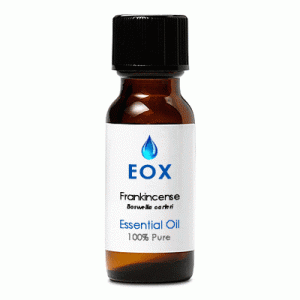 As more information becomes available about the use of particular essential oils for specific aromatherapy applications, the known compounds of importance become benchmarks for quality that soon become paramount in the perception of its market value. Essentially, the compound levels evolve into a quality-metric in the marketplace.
As more information becomes available about the use of particular essential oils for specific aromatherapy applications, the known compounds of importance become benchmarks for quality that soon become paramount in the perception of its market value. Essentially, the compound levels evolve into a quality-metric in the marketplace.
An example of this would be an expectation of a high level of carvacrol in oregano oil (Origanum vulgare) or kavalactones in kava kava (Piper methysticum) extract. It is these compounds that are often considered to be the active ingredients (from the allopathic point of view) and they become the key ingredient of importance, and thus, the market drivers.
Recently (2/9/2010) the BBC News ran the story ‘Frankincense – a cure for cancer?‘ which discusses the discoveries from joint field research between an overseas immunologist and medical scientists from the University of Oklahoma.
The immunologist, Mahmoud Suhail, has observed that frankincense oil arrests the spreading of cancer and induces already cancerous cells to close themselves down.
He is quoted to say “Cancer starts when the DNA code within the cell’s nucleus becomes corrupted. It seems frankincense has a re-set function. It can tell the cell what the right DNA code should be.”
“Frankincense [oil] separates the ‘brain’ of the cancerous cell – the nucleus – from the ‘body’ – the cytoplasm, and closes down the nucleus to stop it reproducing corrupted DNA codes.”
While that information seems promising for many, the balance of the article goes on to discuss the non-holistic ideology behind their current efforts to isolate the responsible compound, although they probably wouldn’t say it that way.
Basically, they admit that the frankincense oil works by itself, but they are attempting to narrow the list of the 17 possible agents (isolated compounds occurring within the oil) down to one. The reason they give is that some of the compounds (although they didn’t name them) are allergenic, so it cannot be administered as a whole oil.
Meanwhile, the current alternative to a treatment that is possibly allergenic is bombardment with radiation that is so toxic every hair on one’s body falls out along with fingernails and toenails which turn completely black just prior to falling out. BUT, they don’t want to administer something to which someone might have an allergic reaction?
Makes you wonder if these guys ever heard the term ‘therapeutic margin’ in their long years of medical studies? Surely they have, but the bottom line isn’t about possible allergens, it’s about isolating a compound that they can pillage from nature and then patent as a pharmaceutical. Then they will spend millions of dollars on research to see if a ‘nature identical’ (lab created) compound will do the same thing, but cost a lot less than cultivating frankincense, and then they won’t have to bother with nature at all.
In the meantime the demand for frankincense oil will increase and the prices will rise sharply. The good news for the aromatherapy world is that after the dust settles, the prices for frankincense will probably level out to a reasonable point because the pharmaceutical manufacturers aren’t interested in continuing to use something natural. The bad news is that while they are positioning themselves to control one of the most valuable markets in the health industry, people will continue to choose to undergo chemotherapy because they don’t feel like they have another choice.
In the article, the ‘tiny’ doses of isolated compounds that they discuss administering are never quantified, nor is the method of administration, but it does state that in the next few months they should have identified the compound within frankincense oil that eliminates cancer, or at least some types of cancer.
So, in the short term the increase in demand for frankincense oil will drive the price up once the news really spreads, and there will be a newly-named market driver that has an expected level within the oil. That percentage will become the new benchmark that will be expected of a quality oil.
Of course, with human nature as enterprising as it is, this new information will lead to increased cases of chemical adulteration of some of the oil on the market to raise its value by adding enough of the newly-important isolate to the truly distilled oil to provide a standardized product with a stable market value. Therefore, increased testing measures will become necessary to be assured of pure frankincense oil, but that is a matter for another post.
Live Natural. Go Pure!
Michael


